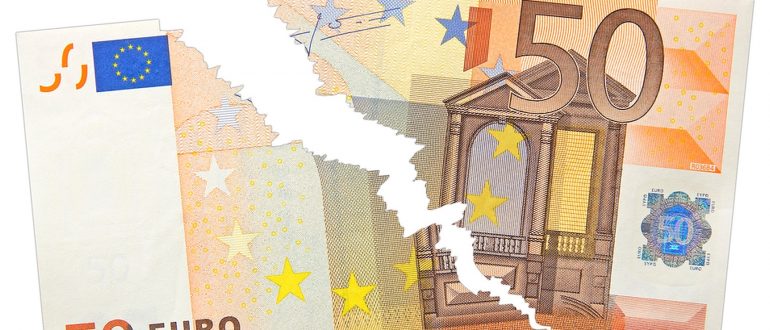
The hidden explosive of the European Union
“Without the France-Germany axis, Europe cannot be led. France alone cannot do this; it lacks the economic power and Germany lacks the political background because of its history.” (Gerhard Schröder, Former German chancellor)
Two dividing lines are shaping the European landscape. On the one hand, there is the East – West divide. It is political. The West portraits itself as the harbor of liberalism and tolerance and fears the East might become illiberal and authoritarian, whereas the East regards itself as reasonable and Western politicians as dreamers detached from reality. The growing significance of the Visegrad Group supports this claim. This conflict alone could tear apart the European Union.
In this short article though, I want to focus on another dividing line. The economic North – South divide. The South consisting of all major European economies at the coast of the Mediterranean, while the North comprises of the Germanic and Scandinavian countries. Both sides follow completely different monetary policies trying to (ab)use the European Institutions, in this case especially the European Central Bank (ECB), for their agenda. The more economically stable North prefers a restrictive monetary policy reducing their debts, lowering inflation, and most importantly getting higher interest rates for their savings.
Contrary to that, the South advocates for expansionary monetary policy. Taking huge debts to boost their weaker economies still hit by the financial crisis of 2008. Of course, they want to pay as little as possible for their debts, or in other words: Low-interest rates. In between this juncture there is France. It cannot be clearly assigned to any side of the divide. However, with Macron arguing for a European transfer union, France heavily leans towards the South.
Bluntly said, through the ECB and their policy of quantitative easing the European South wants to print its way out of its economic weakness while the North fears that ultimately it will have to pay the bill. This is visible in the wake of the current pandemic. At the EU Corona Crisis Summit in July France put “Corona-Bonds” (joint European bonds that essentially mutualize debts) on the agenda. This proposal was at first dismissed by Germany and the “Frugal Four” (a coalition of Austria, Sweden, Denmark and the Netherlands demanding a responsible EU budget). The stalemate was only breakable after Germany put back its own interests and joined France and mediated compromises with the “Frugal Four”. This case perfectly proves the point Gerhard Schröder was making: A European Union with a divided France and Germany will be a divided European Union. The question is: How long will Germany play this game?
It is somewhat ironic, that the unifying idea of one monetary policy, one central bank, one currency might turn out to be the explosive that separates the union. To conclude, Angela Merkel often stated, that if the Euro fails, the European Union will fail. If this is more than just political rhetoric, the European institution of a joint currency managed by one central bank becomes anything but a vessel for unity.
Disclaimer: The views and opinions expressed in this article are those of the author and do not necessarily reflect the opinion of IFAIR e.V. or its members.

Jakob Arnold
Jakob Arnold is a bachelor’s student in International Relations at the University of Erfurt in Germany. (jakob.arnold[at]uni-erfurt.de)
